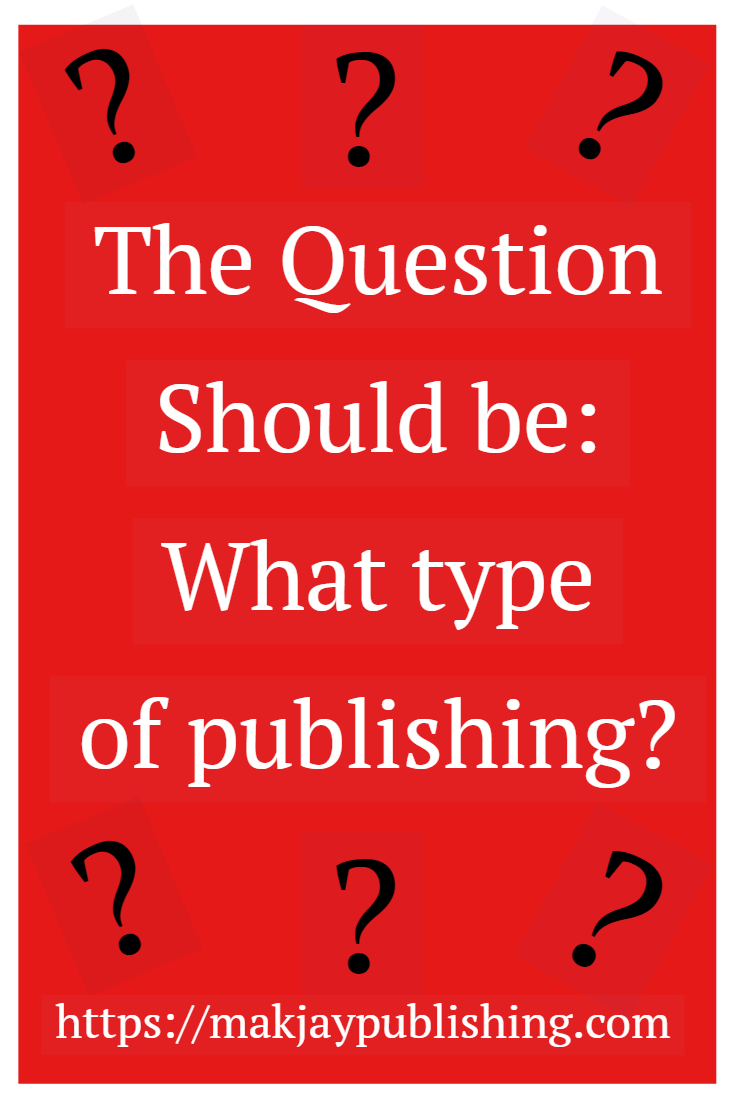To publish or not to publish: This isn’t the question
Serious writers are not asking whether to publish or not to publish. If a person writes, it is fair to assume they want their work in the marketplace. Therefore, the real debate centers on whether writers should choose self-publishing, follow a traditional path, or opt for a hybrid solution. Conversation and opinion abound in this debate, giving writers every reason to weigh their options thoroughly.
Self-publishing path
On this path the author might decide to start and operate an independent press or imprint. In essence the writer becomes their own publishing house using their personal name or by creating a formal business name. Writers cover the entire cost of bringing the book to market and assume the responsibility of getting the job done.
Not that a writer couldn’t hire professionals such as editors, book cover designers, and others along the way. After all, “Nobody publishes a good book alone.” In fact, during a workshop presented by Women in Publishing, the speakers recommended writers employ the services of an author’s virtual assistant. For many authors this makes sense considering how much work writing, publishing, and marketing a book requires.
Greater control, greater rewards
Another consideration, and often a powerful feature, of the self-publishing path involves the level of control writers prefer over their books. This path gives most control to the writer and gives them the lion’s share of the sales. Or, at least, a greater part of it goes to them. A percentage of the revenue may still go to book distributors who ask for discounts on their book orders.
Traditional path
This path involves a traditional publisher who contracts with the author to produce and distribute their book. On one hand, the author has much less control over their book and smaller portions of the book’s proceeds reach the author. On the other, the author has less work in preparing the book for publication except for writing, revising, and marketing. The publisher handles book production, distribution, warehousing, and some marketing.
Traditional publishers often require that authors engage the services of an agent. Agents, after securing a contract on behalf of the author, will take their cut, along with the publishing house and its different departments. Although more authors are self-publishing, a strong sense of accomplishment and relief arises when an author is “picked-up” by a traditional publishing house. For instance, Amanda Hocking experienced outstanding success as a self-published author, but when St Martin’s Press and Pan Macmillan offered her a contract, she accepted. Why? Amanda’s success wasn’t without plenty of time and effort. She would be the first to admit self-publishing is hard work. When a traditional publisher came along, they offered the relief and help she needed.
Hybrid path
There is a third choice on the table as well; hybrid. Think of this model as a compromise between the self and the traditional paths. Today’s marketplaces offer services that range from editorial only to full-service packages for independent authors. Companies offering these services are just as varied and often include ones that are more traditional. The author pays for most of the services, such as editing, book design, marketing, and more.
The greatest benefit to the hybrid path is having a team of experts to help with all the work. However, authors should research these service providers well before contracting with them. Sad, but true, unscrupulous businesses have taken advantage of many authors. Best practice is to speak with other authors regarding their experiences.
Learn about the publishing process
The key? Learn as much as possible about the different paths. Some recommended ways to help select one include:
- Read books related to the industry.
- Read blogs from industry experts.
- Take online courses.
- Attend writer’s conferences.
- Listen to Podcasts from organizations such as Association of Independent Authors.
- Find a mentor or join writers’ groups that include authors experienced in publishing.
- Ask questions whenever you can or need.
- Do not be afraid to seek help from author virtual assistants.
- Weigh the costs versus the benefits of each path.
- Consult sites such as Writer Beware to help identify less reputable service providers.
- Obtain references and recommendations from other authors
These excellent resources go a long way in helping an author make informed decisions.
To publish or not to publish may not be the question. But asking which path is right; now that is the real question.
MJP Editor
Makjay Publishing
- https://www.theguardian.com/books/2012/jan/12/amanda-hocking-self-publishing


